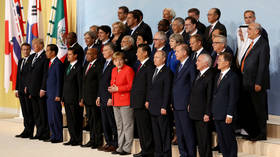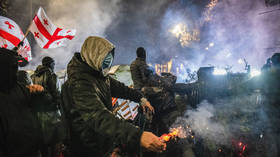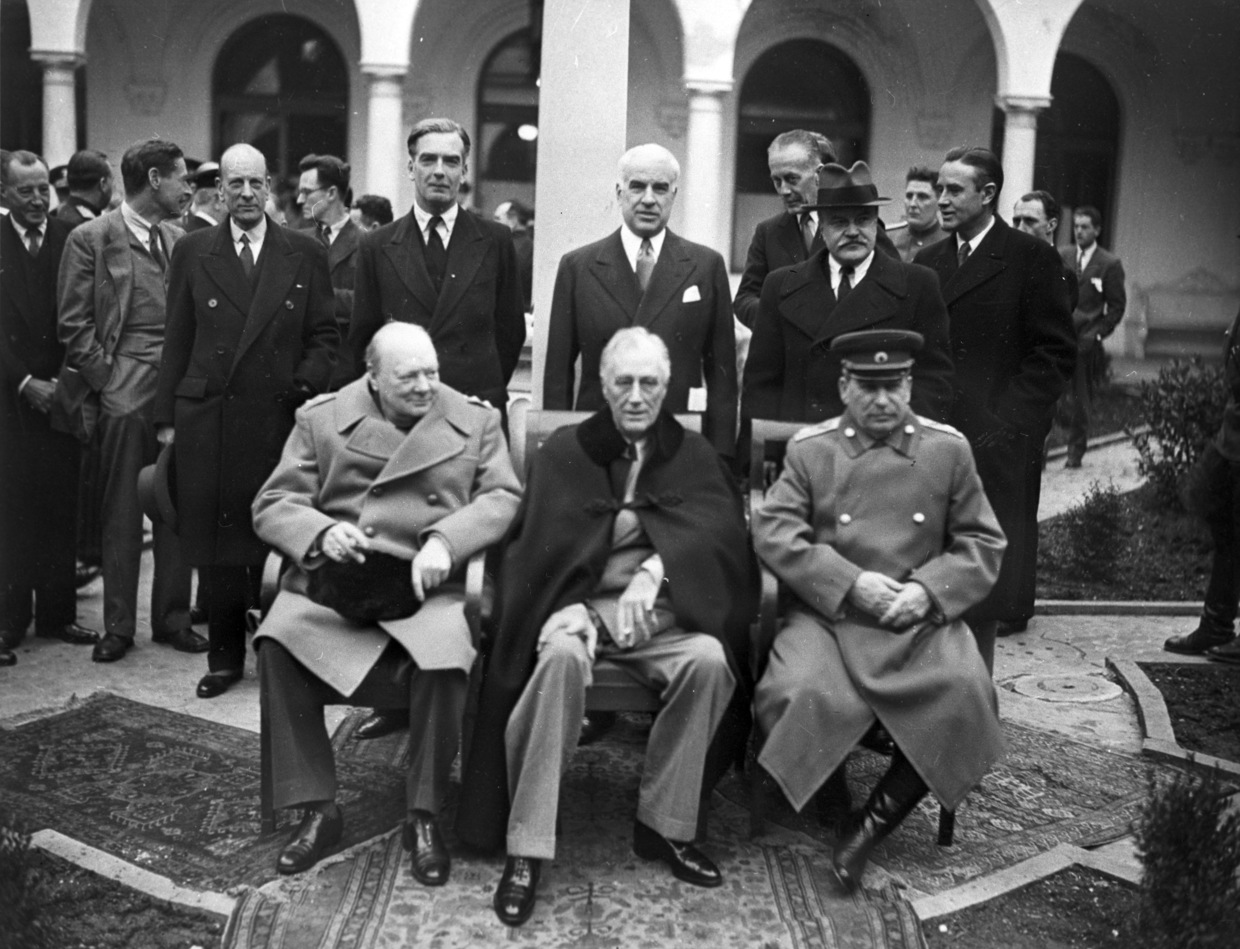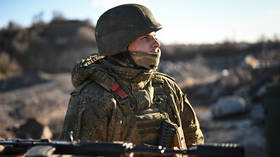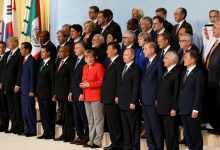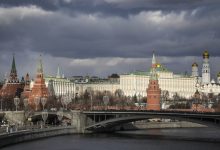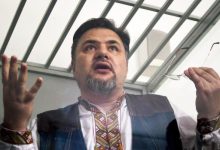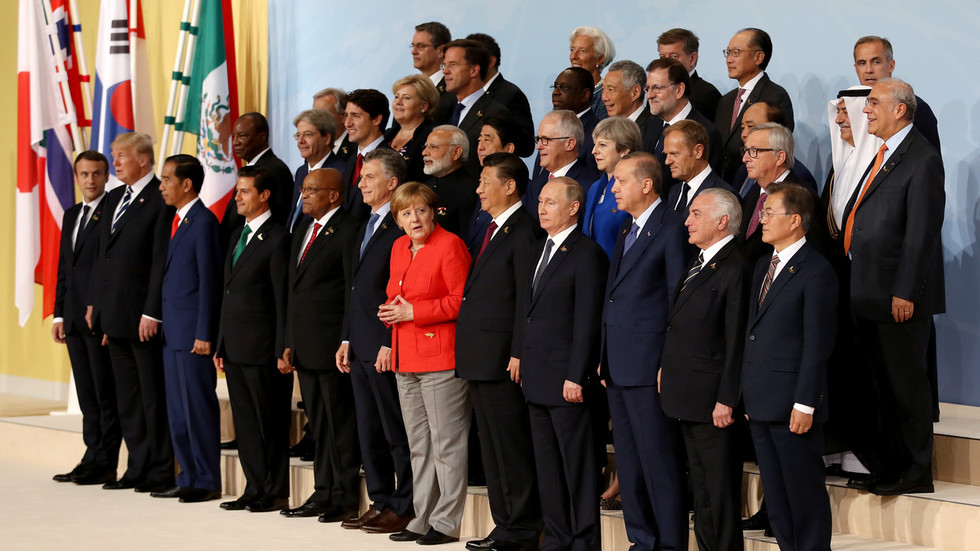
Eighty years after Yalta, here’s why it can’t be repeated

By Fyodor Lukyanov, the editor-in-chief of Russia in Global Affairs, chairman of the Presidium of the Council on Foreign and Defense Policy, and research director of the Valdai International Discussion Club.
By Fyodor Lukyanov, the editor-in-chief of Russia in Global Affairs, chairman of the Presidium of the Council on Foreign and Defense Policy, and research director of the Valdai International Discussion Club.
Russia in Global AffairsRGA on Telegram
FILE PHOTO: G20 summit on July 7, 2017 in Hamburg, Germany. © Matt Cardy / Getty Images Eighty years ago, on February 4, 1945, the Yalta Conference brought together the leaders of the anti-Hitler coalition to lay the groundwork for the post-war world order. This was a landmark event that shaped global relations for decades. While the Helsinki Final Act of 1975 marked another milestone, it was an extension of Yalta’s principles rather than a new foundation. Since the end of the Cold War, however, there have been no binding agreements that define the global order. The world has changed fundamentally, and the current dynamics make it unlikely that a similar agreement could be reached. The unraveling of established norms and increasing geopolitical competition have sparked calls for a “new Yalta” – a grand treaty to establish principles for today’s reality. With US President Donald Trump’s return to the political stage, such discussions have intensified. On one hand, Trump’s rhetoric often undermines the remnants of the old rules. On the other, he has a penchant for striking deals. But can a new grand bargain really emerge? Hardly. Trump’s approach to deal-making prioritizes monetary gain and situational advantage over comprehensive, long-term solutions. His understanding of agreements is transactional, lacking the vision required for a treaty on the scale of Yalta. Yet this is not solely about Trump. The Yalta-Potsdam agreements emerged from the ashes of a global war, with victorious powers jointly dismantling the challenger to world domination. This unprecedented collaboration gave the Allies the moral and political authority to shape the world order. Despite the intensity of current conflicts, particularly in Ukraine, it is incorrect to equate them with a world war. Much of the planet views today’s clashes as internal disputes among powers unable to fully conclude the Cold War. While sympathies vary, most nations prefer to stay on the sidelines, minimizing their own risks and costs.
Moreover, the concept of a “world order,” as understood in Western terms, is losing relevance. For centuries, the great powers of Europe and later the Northern Hemisphere imposed rules that gradually extended to the entire planet. But as Western hegemony wanes, those rules no longer resonate universally. The rising powers of the Global South and East are not eager to take up the mantle of global leadership. Instead, they prioritize safeguarding their interests in specific contexts, echoing Trump’s transactional approach. China offers a compelling example. While Beijing frequently proposes global initiatives, these are often broad, aspirational statements that lack detailed implementation plans. China’s principles may hold internal coherence, but they fail to gain traction globally. The same applies to other major powers with unique cultural and political traditions. As their influence grows, their willingness to conform to external rules diminishes. This shift does not eliminate the need for frameworks of coexistence. However, future international relations are more likely to resemble the flexible, informal structure of BRICS+ rather than rigid, binding agreements. This model acknowledges shared interests without imposing strict criteria or legal obligations.
The Yalta (Crimea) Conference of Allied leaders (February 4-11, 1945). © Sputnik / RIA Novosti Could a new “Yalta” agreement be possible between Russia and the West? In theory, yes. A limited arrangement aimed at resolving specific regional disputes might emerge. However, there are no signs of such an initiative at present. Even if it materialized, its global impact would be limited. The era of comprehensive agreements defining world order appears to be over.
The end of liberal globalization – often framed as the “rules-based order” – marks a significant turning point. While the fragmentation of the international system has not occurred, the interconnectedness of the global economy persists despite political tensions. Efforts to isolate countries like Russia have resulted in distortions and inefficiencies, but they have not severed global ties. This resilience highlights the enduring complexity of international relations. The current state of affairs is neither entirely dire nor entirely hopeful. While the absence of a unifying global framework creates uncertainty, it also opens the door for pragmatic, case-by-case agreements. However, attempts to revive imperial politics and establish spheres of influence risk further instability. The balance of power no longer favors a single normative authority, whether the United States, China, or any other nation. In the aftermath of the Covid-19 pandemic and the ongoing geopolitical upheavals, the world has entered a period of profound transformation. The varnish of the old order has been stripped away, revealing its underlying fragility. While the challenges are significant, they also present opportunities for reimagining global relations. The question remains: can the international community rise to the occasion, or will it succumb to the forces of division? The first steps of this new era suggest that while a return to the past is impossible, the future remains unwritten. This article was first published by the newspaper Kommersant and was translated and edited by the RT team.